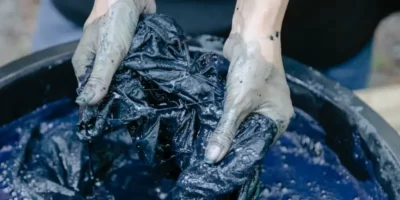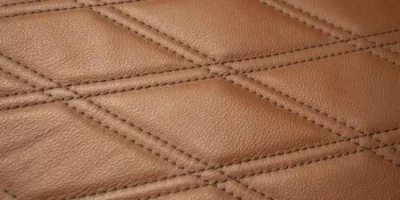The machine must be descaled regularly to ensure that the coffee is not spoiled. We outline four home remedies that are very suitable to descale a coffee machine.
A good coffee is not the only thing that makes up the beans used. It also depends on the water quality. In most German households, hard water flows from the tap. This causes the coffee machines to calcify and the coffee flavors fall by the wayside.
If you do not descale your coffee machine regularly, you risk damaging the device and deprive the aroma of your favorite drink. Below you will find tips and information on how to descale coffee machines using simple household products.
Why do you need to descale a coffee machine?
There are a few good reasons to descale a coffee machine regularly. Calcified machines work slower than a decalcified machine. This wastes unnecessary energy. In addition, calcified coffee machines can quickly become a disturbing factor in the room due to the increased operating noise.
If the water has been in the machine for too long, a biofilm is formed, which has a negative effect on the taste of coffee. Ultimately, the neglected decalcification damages the machine. In the worst case, the pump is on strike because the lines are so calcified that water can no longer flow. The repair costs incurred can be quite expensive — which is another good reason to descale a coffee machine!
How often do coffee machines need to be descaled?
How often it is necessary to descale a coffee machine depends on the water hardness and the frequency of use. If you make coffee every day and fill the machine with hard water, you should descale every four weeks.
Tip: The content of calcium and magnesium compounds determines the hardness of the water.
The water hardness is defined according to the concentration of calcium carbonate
soft: less than 1.5 millimoles per liter
medium: 1.5 to 2.5 millimoles per liter
hard: more than 2.5 millimoles per liter
Some coffee machines make it easy for you and indicate when it is necessary to descale a coffee machine. High quality coffee machines such as a coffee machine with grinder often have descaling and cleaning programs. Some machines make it possible to adjust the water hardness individually. This means that the upcoming descaling can be displayed even more precisely.
Descale a coffee machine with household products

Many home remedies are ideal for cleaning and are easy on the wallet. The following agents are ideal for descaling:
- vinegar
- citric acid
- baking powder
- aspirin
Descale the coffee machine with vinegar essence
Vinegar essence is a very aggressive home remedy. Pure use is to be avoided. The vinegar essence should be diluted with water before use. The ratio is 1: 4. Devices equipped with a pump are particularly sensitive. A mixing ratio of 1: 8 is shown here.
The procedure in brief:
- Pour two cups of cold water into the water tank
- add half a cup of vinegar essence
- Insert paper filter
- Put the machine into operation
- let half of the liquid run through
- Switch off the machine
- wait half an hour
- Put the machine back into operation
- Allow liquid to run through completely
The water that has passed through is poured away and you also dispose of the paper filter. To ensure that you can really enjoy the next coffee and that it does not taste like vinegar, the coffee machine must be put into operation several times in advance. Just let clear water run through at least three times. The highest utilization of the number of cups should be selected.
Descale the coffee machine with citric acid
Citric acid is less aggressive than vinegar essence. However, this home remedy is not suitable for hot descaling. You can get citric acid from drug stores or on the Internet.
Here’s how to do it:
- Fill the water tank of the coffee machine completely
- add a teaspoon of citric acid
- stir vigorously
- Put the machine into operation
- Allow liquid to run through completely
- Discard liquid
- Run the machine through several times with clear water
Tip: Citric acid should not be heated if possible. The crystallized calcium nitrate could cause blockages.
Citric acid is particularly suitable for coffee machines that include a cold descaling program.
… also works with fresh lemons

A commercially available organic lemon can also be used for light deposits. Their acidity is a maximum of ten percent. The lemon is cut in half and you remove the seeds. The lemon juice is placed on a cloth. This allows limescale deposits to be removed from the filter system. The lemon juice should take effect for about 30 minutes and is then removed with a damp cloth.
The lemon is squeezed out completely for cleaning the inside of the coffee machine. The juice collected must be passed through a sieve so as not to contaminate the coffee machine with pulp.
Tip: The juice of a lemon should be diluted with a liter of water.
The mixture is poured into the water tank and the machine started. After half of the run, the process is stopped and paused for about half an hour. Then let the remaining lemon water run through and start two runs with clear water before the next coffee is prepared.
Descale the coffee machine with aspirin
Aspirin doesn’t just help against headaches. The composition of the tablets is also suitable for decalcifying coffee machines. The water tank is filled to the maximum. Then dissolve an aspirin tablet in the water. The machine is started up as usual. After the complete run, the liquid has to be disposed of and it is again rinsed twice only with clear water.
Descale the coffee machine with baking powder
Baking soda is a true all-rounder in the household . The procedure does not differ from the instructions for descaling with aspirin. Put a packet of baking soda on a completely filled water tank.
Special features when descaling different types of coffee machines
There are different deviations and distinctions between the different types of coffee machines. We have summarized what should be observed in detail in the following overview.
| Coffee Machine type | particularities |
|---|---|
| Coffee maker | • easy to use • all the home remedies mentioned can be used as described |
| Kaffeepadmaschine | • Citric acid is suitable. • Before use, a used coffee pad is inserted |
| Siebträgermaschine | • All of the above-mentioned home remedies are suitable in appropriate concentrations. • A sufficiently large vessel must be placed under the brewing head. |
| capsule machine | • Citric acid is suitable • Avoid vinegar • Start decalcification program • If there is no decalcification program, start the normal brewing process and insert the used capsule beforehand |
| Kaffeevollautomat | • Avoid vinegar if possible • Prepare the decalcifying solution • Start the decalcifying program |
Clean the coffee machine with a commercially available descaler
Ready-made decalcifiers are available in drugstores or online shops. These are offered in different dosage forms. You can use complete solutions or mix the liquid yourself from a concentrate. Powder can also be purchased, which must be dissolved in water before use. In this regard, the manufacturer’s instructions must be observed.
Chemical cleaners are filled into the water tank. An unused paper filter is inserted and later collects the dissolved limescale. You start the machine and let the water run through completely. After the liquid has been poured off, the coffee machine must only be operated several times with clear water in order to remove all residues.
Prevent limescale
The best way to prevent a calcified coffee machine is to clean it regularly. Many modern machines have a corresponding device display. Otherwise, follow the manufacturer’s recommendations.
Tip: Those who descale more often do not have to resort to aggressive cleaners.
It is an advantage to know the hardness of the water. Hard water is the main cause of calcified coffee machines. The use of water filters is recommended. Filter cartridges are available for many coffee machines, which can be mounted directly in the water tank.
Tip: The addition of baking soda also ensures softer water.
The dosage requires sensitivity. A pinch of baking soda should be enough for each tank filling.




